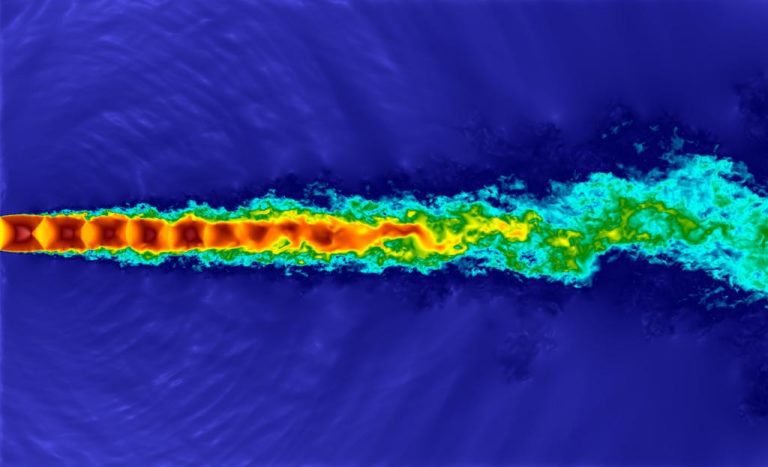English only

Art or science? – The calculated wake of a ship’s jet propiusion (Image: DCSE)
The TU Delft Institute for Computational Science and Engineering (DCSE) celebrates its first lustrum and the recent launch of the DelftBlue supercomputer in the ‘The art of scientific computing’ event on Friday 30 September in the Prinsenhof in Delft.
Keynote speakers include Zoltán Perkó (who develops artificial intelligence applications for unsolved challenges in cancer care); Henk Prins (who develops zero emission shipping simulations at Marin); and, Jacqueline Chen (Sandia Labs on simulation of zero carbon combustion of hydrogen and ammonia).
What about the art? This comes from digital artist Jeroen van der Most who has created art with data and algorithms for over a decade. His present focus is on artificial intelligence and how it can be used to deepen our relationship with our natural surroundings.
The varied programme of lectures is complete with digital posters and animations presenting the work that has been done by various DCSE groups.
- Visit the event website for more information and registration.
Do you have a question or comment about this article?
j.w.wassink@tudelft.nl

Comments are closed.